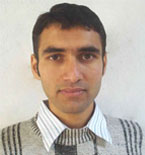| |
|
|

Interviews ::
 |
Amy Wu, an award-winning writer for the women’s Ag and Agtech movement |
 |
Ms. Irene Karani, Children’s Investment Fund Foundations’ Africa Climate Director |
 |
Natalia Schäfer (Schaefer), Leading and Globally Renowned Artist |
|
Read All Interviews |
News / Updates/ Analysis ::
COP 27- some hopes midst of chaos
Climate Change is Happening Now- Time to Take Action!
|


|
|
|

|
Nepalese Youth for Climate Action (NYCA) is a coalition of Nepali youth and youth groups tackling climate change, the biggest challenge of our generation. The network spread all over the country. NYCA played an important role to organize South Asian Youth Summit on Climate Change (SAYSoCC) from 3rd -6th September 2009, where youth representatives from South Asia region participated in the event. The aim of the SAYSoCC is to provide a platform for youth to define climate change from their viewpoint and to engage in dialogue on possible solutions through steadfast and resolute action, in order to fight climate change and to propagate the values and principles of sustainable development.
|
Manjeet Dhakal, has been working on Clean Energy Nepal as focal person for Climate Change and advocacy campaign. Currently, he is also accredited as 'International Climate Champion' by British Council. He is a founder Coordinator of Nepalese Youth for Climate Action (NYCA). Manjeet was involved in organizing the South Asian Youth Summit. Below is the brief summary of his interview:
- What were the outcomes of the South Asian Youth Summit, 2009? What are your upcoming actions? You and your organization played the coordinating role, what was the motivating factor?
The most important outcome was that SAYSoCC was able to bring youth of all the South Asian countries to a common platform to join hands and work on climate change issues. This resulted into the formation of the South Asian youth Network on Climate Change. South Asian Youth Declaration on CC was also the first ever common youth document on climate change on South Asian region.
After SAYSoCC, our efforts have mostly been concentrated on South Asian Youth Delegation (SAYD) to COP 15. More than 100 youth from South Asian countries will be participating in COP 15.
South Asian home of one fifth of world population and has clearly observed the impacts of Climate change. There are few points that inspire us to organize SAYSoCC:
- We believe in power and potentiality of youth, there was a necessity to unite these proactive youth engaged on climate change issue in this region.
- English is not the first language of this region, which lacks on International negotiation; youth can take lead on this.
- In spite of this region being ecologically and geographically linked, cooperation has been weak. Climate change will necessitate these countries to work together and we feel that this initiative has been started from the youth level. By building a momentum from the ground up, we believe that a strong coordination between these countries will help to respond to climate change better.
- Most often under the name of youth, only male youths are dominant how do you see the role of girls in such youth initiatives?
My first point will be there were more female participants in SAYSoCC. My experience is quite different; My organization (CEN) calls for volunteers each year and more than half will be young college girls who submit their applications. We believe the role of men and women is equal with regard to such initiatives. Climate change doesn't discriminate depending on gender and neither do we.
- How do you see the role of youths in climate change issues?
Youth are the one who will be affected by changing climate, problem we face today are the results of unmanaged development patterns in the past. Young are adept at spreading new habits, raising awareness and advocate for change.
We all know that this fight to stem global warming now has a new front: students and youths. Our voices – the voices of young people- should be heard and taken into account in decisions like these which affect our lives today and will shape our world tomorrow.
- World is looking forward for upcoming COP meeting at Copenhagen. In this context do you think the COP conference will be pro poor? And will it be able to address the problems of developing countries regarding climate change?
One of the major focuses on the South Asian Youth Delegation has been to press for a pro poor agreement that will strongly help to push development in not just this region but globally as well. For the concerns of developing countries to be met, we feel that representation and effective negotiations are necessary. We have been working directly with our government delegations to provide input and support where necessary.
- What are the impacts of climate change in Nepal? How do you see the climate change situation in Nepal?
Major impacts of climate change in Nepal are in Himalayan region, which affects the entire ecosystem up to the downstream. Due to the varied topography of the country, the impacts are different depending on the physiographic and ecological factors. Nepali people are heavily dependent on weather related systems like agriculture. Any alteration of the natural system will have profound consequences on the livelihoods.
- What kind of activities you are doing in the specific context of Nepal?
Moreover our activities are related to raising awareness and advocacy campaign. We have felt that mountains have not received as much attention as they should. Most of the public discourse on climate change focuses on sea level rise. The impacts of mountains are equally severe. For a country like Nepal, this can have devastating consequences. We organized an action at the Bangkok Climate Talks and have been carrying it forward. After a successful event in Barcelona, we plan on doing similar actions on a bigger scale in Copenhagen. For this, we have been uniting youth from all over the region as this is a common concern.
On the ground, we are regularly engaged in awareness raising and advocacy campaigns. We are trying to reach the grassroots and connect local action with international policy. We just finished a regional workshop in the Eastern and Central Region of Nepal and will be continuing to do more regional workshops after Copenhagen.
- Aid politics has shown its domination in every sector. How do you see aid politics in climate change in Nepal?
Since climate change is a very multidimensional issue, it is not a surprise that donor interest has substantially grown. Coordination amongst different donor agencies is always a challenge as we can see from past experiences. Therefore, I feel that it is necessary to set up a coordination system now so that these agencies can be effective in their programs and outreach.
- How do you see the level of awareness among youth of Nepal and South Asia regarding climate change?
It definitely has risen in the later days. The active South Asian Network that we've accomplished to start has played a major role in doing so too.
Although a lot remains to be done, I do think the number of climate activists is growing and this is in fact a remarkable progress.
- As the youth network what are your major demands?
First thing is that as a youth network we are committed and confident on what we are doing. Rather than expectation from others, I believe in youth power and our doings. Youth can engage on grassroots activities to the discussion on policy level, we only expect and request to admire youth voice.
Give your feedback: secretariat@earthconcernasia.com
Note: Opinions expressed in interview sections and individual write ups are of interviewee/ authors; earth concern facilitates to bring ideas and perspectives.
|
|

